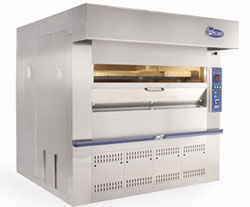
Categories
- Home
- Types Of Gas Ventilation
- Equipment Gas Ventilation
- Gas Appliances Ventilation
- Gas Boiler Ventilation
- Gas Heater Ventilation
- Gas Meter Ventilation Requirements
- Gas Pipe Ventilation
- Gas Range Downdraft Ventilation
- Gas Roof Ridge Ventilation
- Gas Stove Ventilation
- Gas Ventilation Grills
- Gas Ventilation Products
- Gas Ventilation Units
- Heating System Gas Ventilation
- Marine Oil And Gas Ventilation
- Mechanical Gas Ventilation Systems
- Mobile Home Gas Ventilation
- Natural Gas Ventilation
- Roof Ventilation
- Soil Gas Ventilation
- Type B Gas Ventilation
- Underfloor Gas Ventilation
- Gas Ventilation Explained
- Gas Ventilation Suppliers
Natural Gas Ventilation
Most homeowners immediately think about installing fire alarms and carbon monoxide detectors, but not all of them realize that they also need natural gas ventilation. Certainly, this mainly depends on the type of piping and gas line system that goes into the house, if any. Nevertheless, if you are aware that you have a natural gas line providing gas for your cooking and heating needs, you should consider having proper natural gas ventilation in your home. Taking the proper measurements will help you keep your home safe and you will be capable of preventing any future problems.
Protecting Your Home & Your Family
As the head of the family, you’re in charge of providing a safe home for your spouse and/or children. This means that you need to take the necessary precautions to ensure that their safety is your priority, and one of the first things that you need to consider is having proper natural gas ventilation. Perhaps you have noticed how standard fireplaces have the chimney duct where the smoke is released, meaning that this is the ventilation that is needed for the smoke to leave the house. Nonetheless, there are other types of fireplaces that don’t come with a chimney escape and tend to release the smoke within the house. When this happens, you need to make sure that you find a way for the gas to be ventilated properly. In addition, you should try to eliminate other products that may cause indoor pollution, such as:
- Cigarette smoking
- Strong cleaning supplies (solvents)
- Carpets/rugs that cause allergies
- Glue or industrial adhesive
Knowing You’re in Need of Natural Gas Ventilation
If you’re not sure if you need to improve your natural gas ventilation, you can look for certain signs that will help you determine if you do. This will be evidenced mostly by the lack of fresh air in a certain area of your home, such as the living room. Moreover, a few of the signs that will indicate you need to improve your natural gas ventilation are:
- Accumulation of humidity and/or moisture
- Warm air originating from your chimney
- Strong smells that linger
- Sensation of a stuffy atmosphere within your home
- Stale air
In addition, it’s imperative that you understand that gas needs certain conditions to burn correctly. If there isn’t enough oxygen present, then a hazardous gas will be produced, hence the importance of proper natural gas ventilation.
Inadequate Gas Ventilation
When you realize that there is inadequate natural gas ventilation, there might be different factors causing it. Certainly, there will be numerous reasons that are producing an inadequate air supply, which leads to the creation of unsafe conditions for you and your family. However, there are measures that you can take in order to avoid any future issues originating from poor natural gas ventilation. The best way to locate the problems is by understanding the causes, which can include:
- Insulation materials
- Central vacuum systems
- Lack of air duct
- Fireplace or burning equipment left in a closed room
- Lack of open windows
